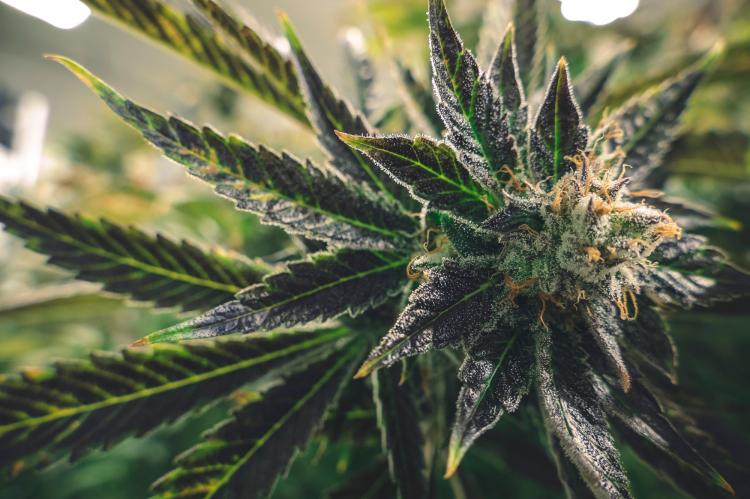3 Things We Learned About Marijuana Stocks in 2019
It's been quite the year for marijuana stocks.
When the year began, it looked as if it would be another green year for the green rush. At the end of the first quarter, more than a dozen pot stocks had risen by at least 70%, and the Horizons Marijuana Life Sciences ETF, the first cannabis-focused exchange-traded fund, galloped higher by over 50%.
However, things went downhill pretty quickly once the calendar changed over to April. A majority of pot stocks have seen at least half of their value disappear, and it's left investors wondering what's next for what had been the hottest investment on Wall Street.
What is certain is that we've learned three very important lessons from cannabis stocks in 2019.
1. There's going to be a steep learning curve for marijuana companies and regulators
To begin with, we learned that the cannabis industry will not be the exception to the rule with regard to all next-big-thing investments. Just as we witnessed with the rise of the internet, business-to-business commerce, genome coding, 3D printing, blockchain, and all other game-changing investment opportunities over the past quarter century, it takes time for an industry to mature, and the same will be true for marijuana stocks.
In Canada, for example, it's going to take multiple quarters, or perhaps years, before Health Canada is able to effectively work though its backlog of cultivation, processing, and sales license applications. Meanwhile, Ontario has struggled to approve licenses for physical dispensaries. Both of these factors have allowed the black market to thrive in our northerly neighbor.
However, the illicit market is also doing just fine in select U.S. states, such as California. High tax rates have made it virtually impossible for legal-channel cannabis to compete with the black market in the Golden State. MedMen Enterprises (OTC:MMNFF), which plans to saturate as much of the California market as possible with its retail locations, is clear evidence of these struggles. MedMen's sequential quarterly sales growth at its California locations rose only 5% and 10% in its fiscal third and fourth quarters, respectively. All the while, this slow growth has contributed to the company's huge operating losses, which totaled almost $232 million in 2019. For context, that's more than MedMen's current market cap.
2. Earnings matter
Arguably the most important thing investors learned about cannabis stocks in 2019 is that promises are no longer sufficient to push valuations higher, and that earnings actually matter. Marijuana stocks that haven't demonstrated substantive bottom-line improvement have been taken to the woodshed in 2019.
A perfect example here is Canopy Growth (NYSE:CGC), the largest marijuana stock in the world by market cap. Canopy began the year having just closed a $4 billion equity investment from Constellation Brands, and Canada had opened its doors to adult-use weed sales only 2.5 months earlier. Given its top-tier Tweed brand, Canopy looked to be in prime position to make significant progress on the earnings front. And yet, Canada's supply issues and Canopy's free-spending ways caused the company to face-plant in epic fashion. In the company's most recent quarter, Canopy Growth's share-based compensation was actually higher than its net sales. Suffice it to say, the company has been losing a mind-boggling amount of money, and its stock has been rightly pummeled.
Comparatively, Trulieve Cannabis (OTC:TCNNF) has fully benefited from better-than-expected operating results. The vertically integrated multistate operator with a major focus on the medical marijuana-legal Florida market reported what I believe to be the best cannabis quarterly results to date in November. Trulieve's total sales grew 22% from the sequential quarter to $70.7 million, with the company not needing fair-value adjustments on biological assets or one-time benefits to generate a profit. Trulieve has opened a whopping 40 stores in the Sunshine State, which has been its key to building up its brand and keeping its expense growth in check. Unsurprisingly, Trulieve's stock is up nearly 60% on a year-to-date basis.
3. Production isn't everything
Last, but not least, we learned that production isn't everything when it comes to marijuana stocks and that intangible factors also matter.
For instance, we learned that Aurora Cannabis' (NYSE:ACB) leading production and international breadth is sort of meaningless with persistent pot supply issues wreaking havoc in Canada. Aurora recently announced that it would be halting construction on its Aurora Nordic 2 campus in Denmark and its Aurora Sun facility in Alberta, effectively reducing its annual peak run-rate output by half. Aurora Cannabis is also unable to ship its marijuana to the numerous foreign markets it operates in because many of those markets are still in the process of developing their medical marijuana regulations. Further, Health Canada is counting on companies like Aurora to satisfy domestic production before exporting in bulk -- and the domestic market is a long way from being satiated.
Another one of those intangible factors that comes into play is certainty. Very little is certain when it comes to the cannabis industry, but those companies that were able to provide some level of predictability have been greatly rewarded. Cannabis-focused real estate investment trust (REIT) Innovative Industrial Properties (NYSE:IIPR), for example, has increased the number of medical marijuana assets it owns from 11 to 42 in 2019. Every time Innovative Industrial makes a purchase, it updates investors with the weighted-average remaining lease length on its assets, as well as the average yield on its invested capital. Plus, since these lease contracts are typically for 10 to 20 years, Wall Street tends to have a very good idea of what to expect on a quarterly and annual basis from Innovative Industrial Properties. This certainty has been rewarded with a 67% year-to-date gain.
- Log in to post comments

